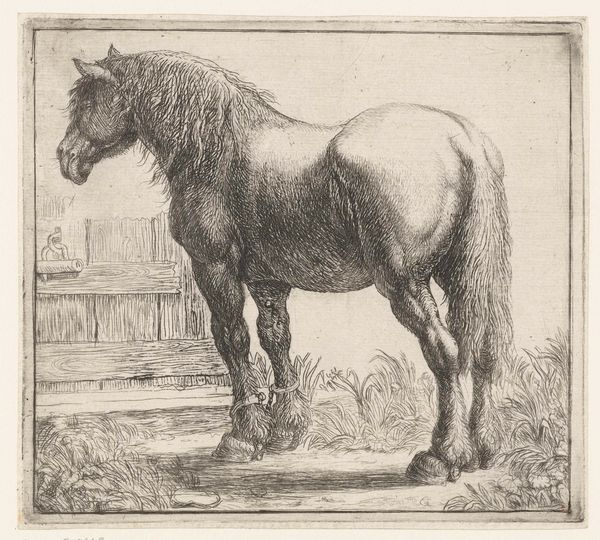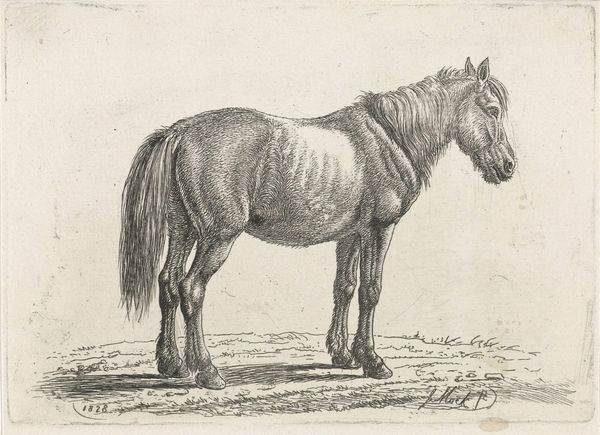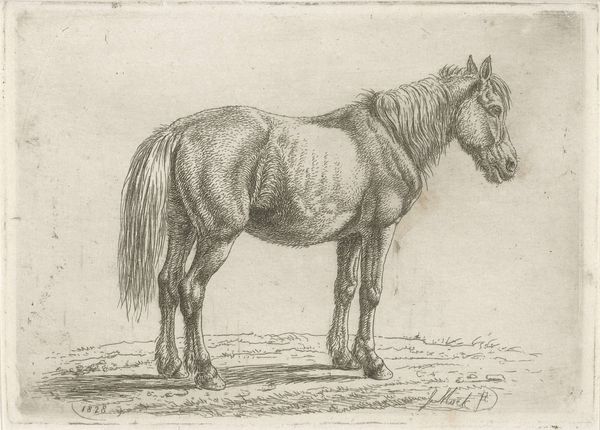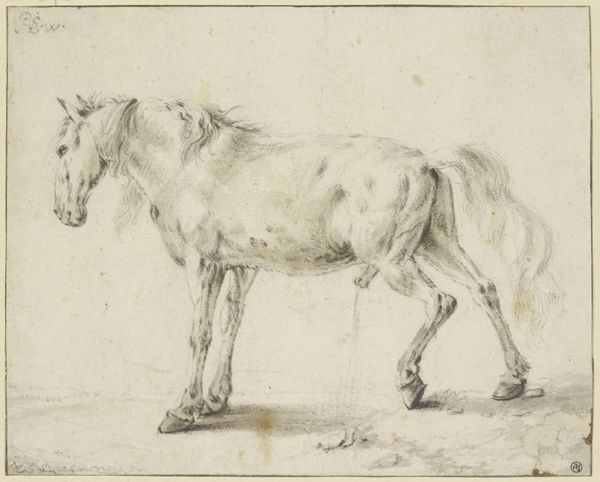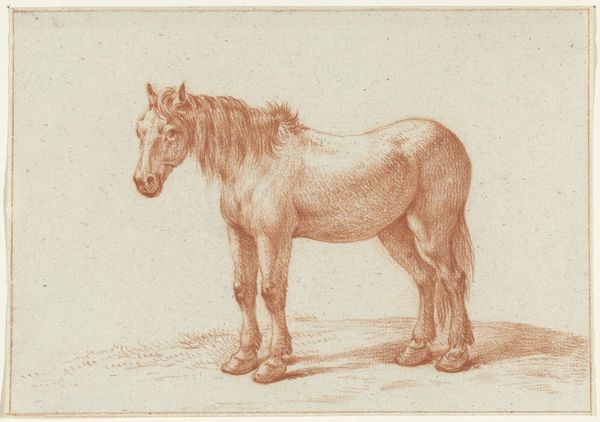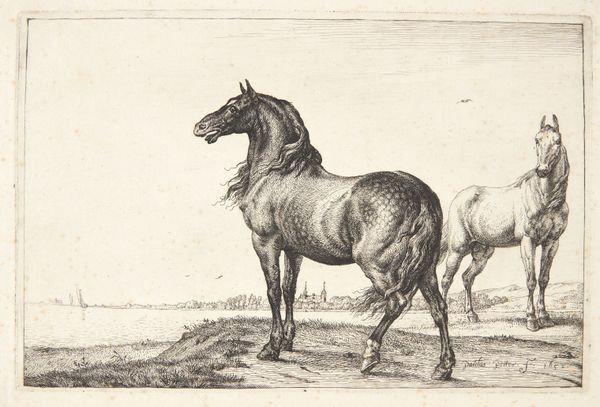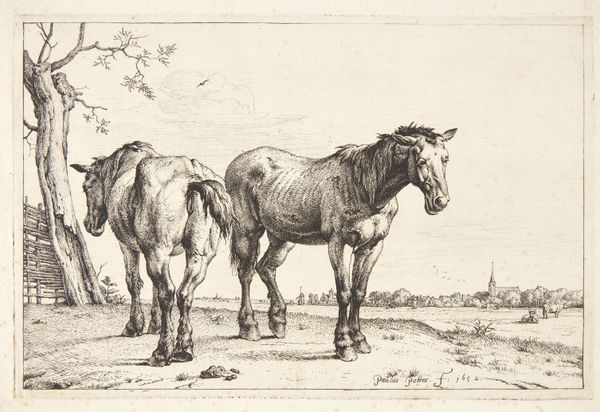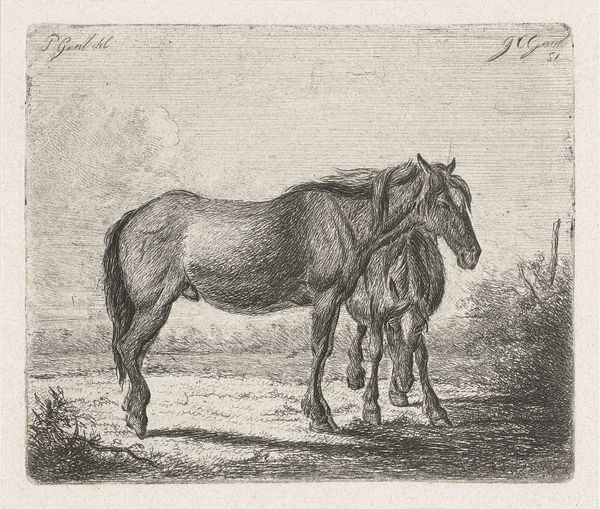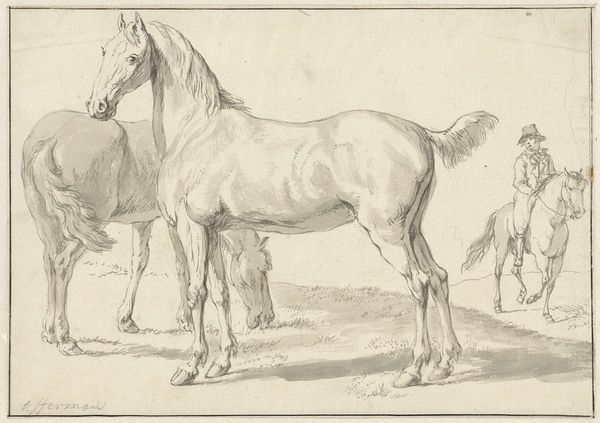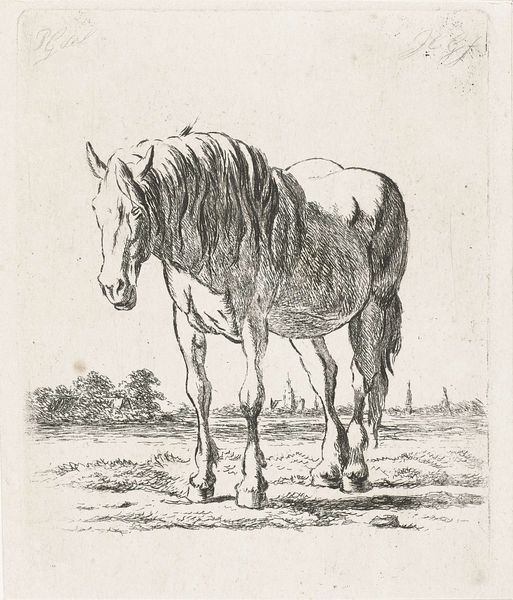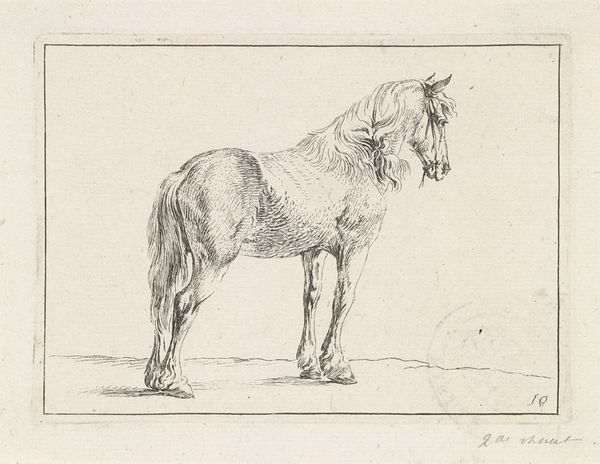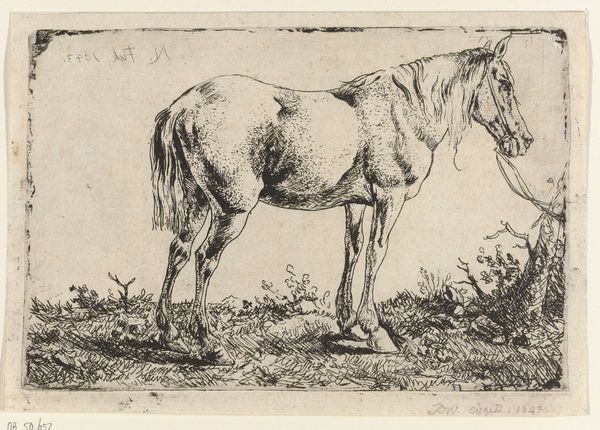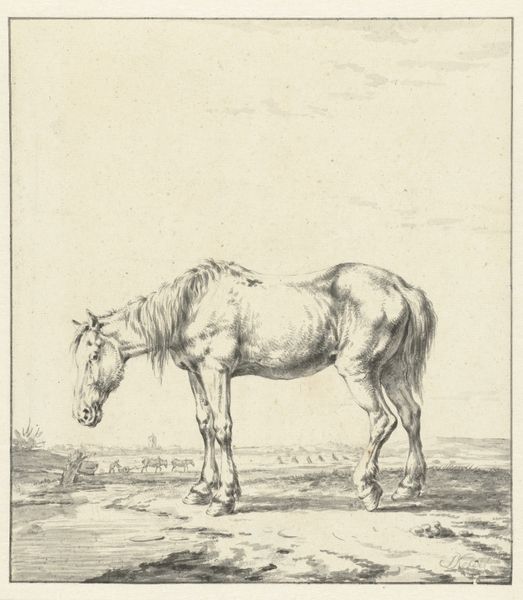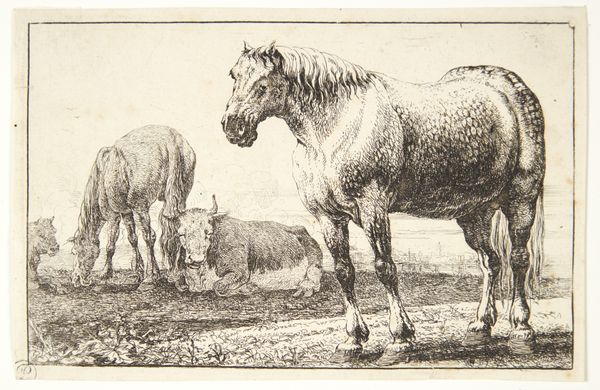
drawing, print, etching
#
drawing
#
animal
# print
#
etching
#
landscape
#
romanticism
#
horse
#
realism
Dimensions: Sheet (Trimmed): 3 1/8 × 3 3/4 in. (8 × 9.5 cm)
Copyright: Public Domain
Curator: It’s hard to look at this etching without immediately thinking of the romantic era and its obsession with animals. Editor: Yes, and it's not just the period, but this one brings such a wave of stillness. I imagine a quiet summer day; lazy flies buzzing about, maybe the distant sound of church bells. Curator: Precisely! The artist, Adam von Bartsch, rendered this piece in 1796. Entitled “Horse standing on a meadow in profile to left”, it demonstrates a fascination with representing the natural world, common during this period of emerging industrialization. This print, created with etching on paper, captures the animal in a seemingly unburdened moment. Editor: There's also something slightly melancholic about him. Notice the downward gaze, almost shy. The artist captured a lot with so few lines. Did you know Bartsch was a curator himself? I can imagine him looking intently at ancient sculptures like this horse. Curator: Indeed. And perhaps that is part of what allows us to see the animal almost as a symbol here, a commentary on freedom but also labor within the broader social context of the late 18th century. We can consider class, labor relations and evolving agricultural practices of the era, to name just a few contextual touchstones. Editor: Or, you know, maybe he just liked horses! Seriously, there’s joy here too! The way the light falls on the mane. He's heavy, yes, a working animal maybe, but there’s a natural pride in his stance, no? He isn't just standing; he's _present_. Curator: A fruitful intersection between lived reality and idealized representation. Considering this print is now housed at The Metropolitan Museum of Art, it begs questions around labor and elitism and reminds us how power structures inevitably influence how we understand what "nature" is meant to represent. Editor: It’s all there. It’s a little window into a world long past, or maybe just another world. It makes you think, doesn’t it? About simplicity, nature, and, yes, everything we've discussed!
Comments
No comments
Be the first to comment and join the conversation on the ultimate creative platform.
